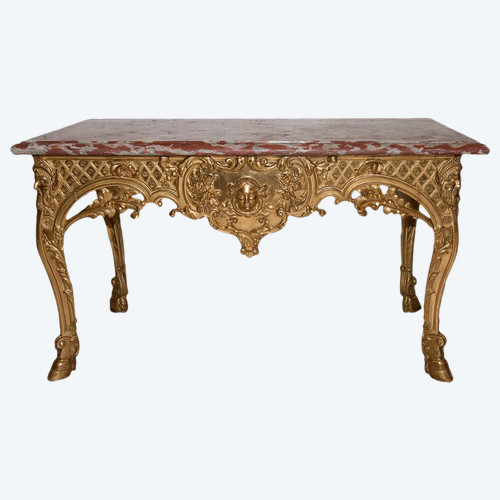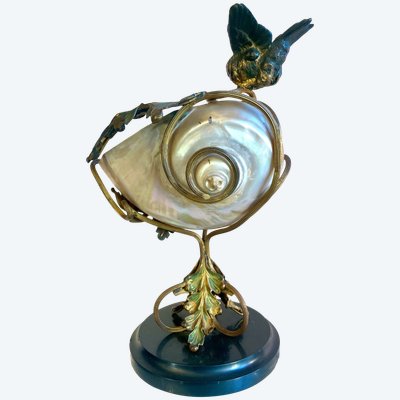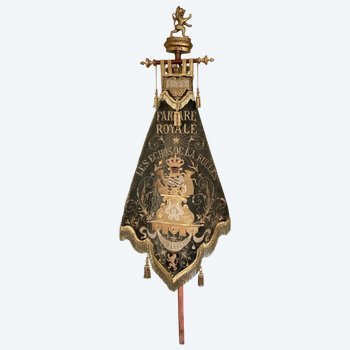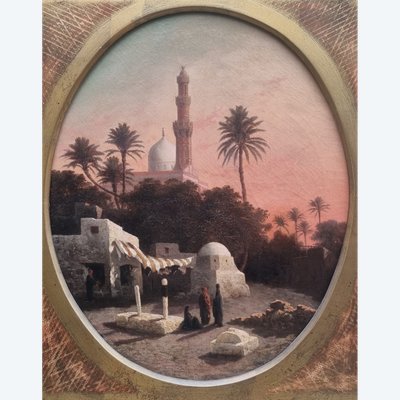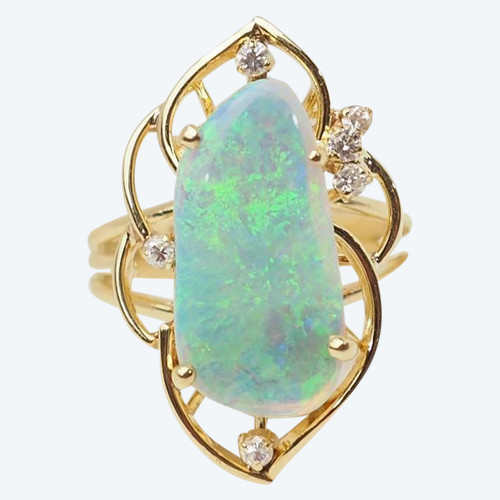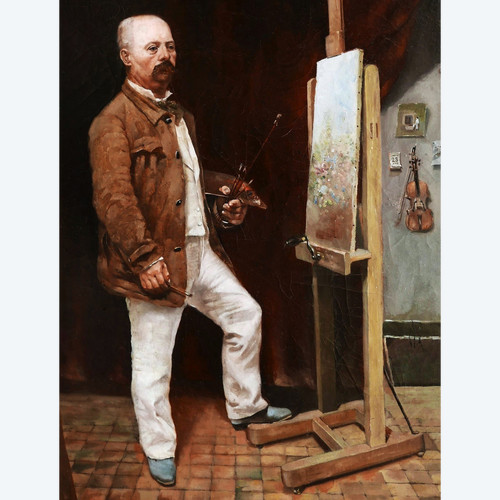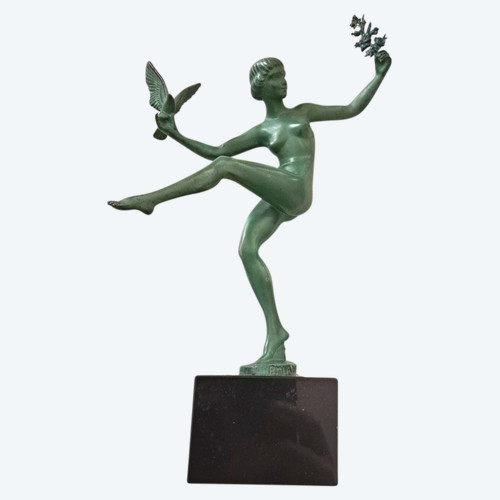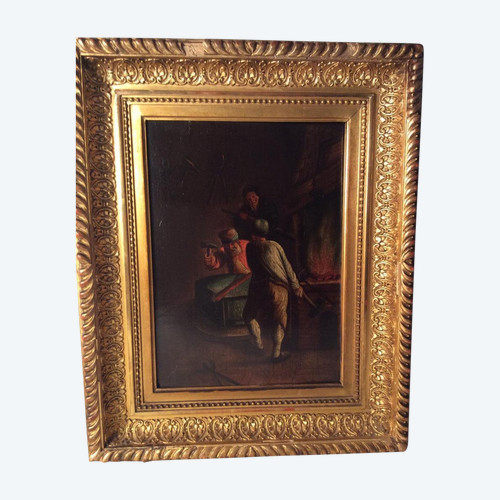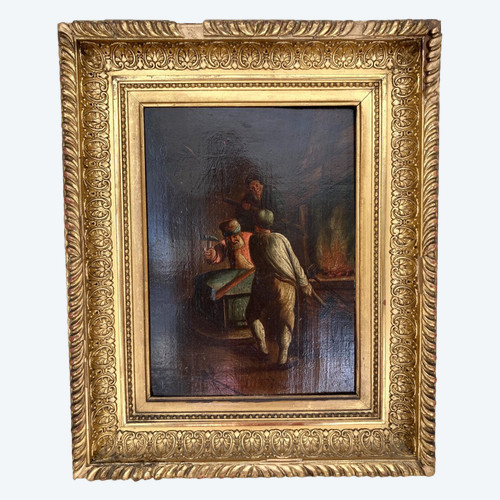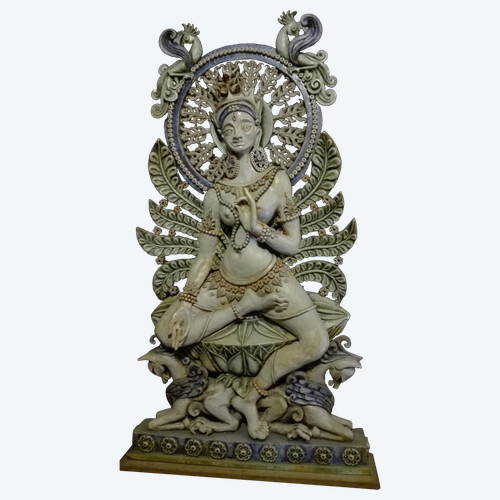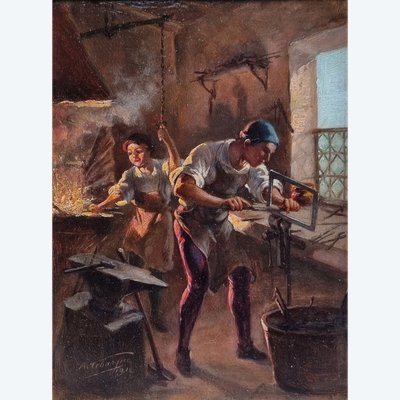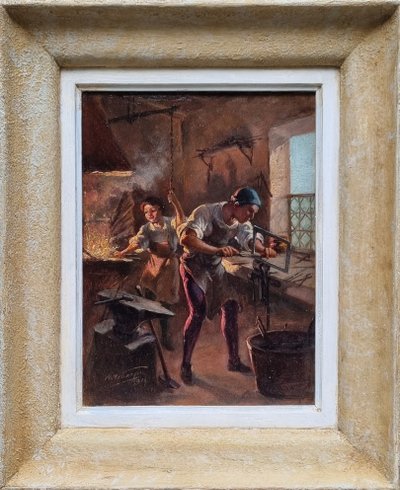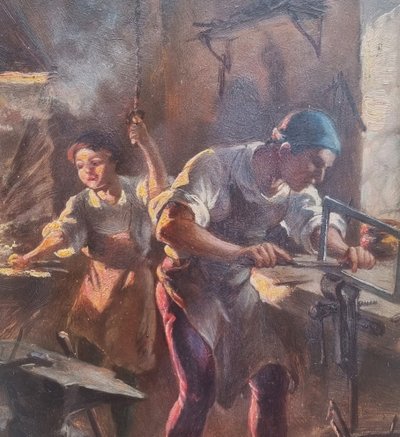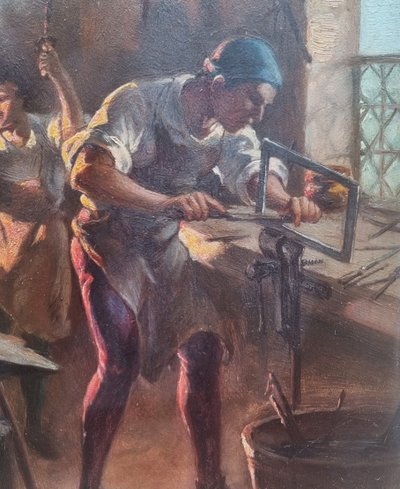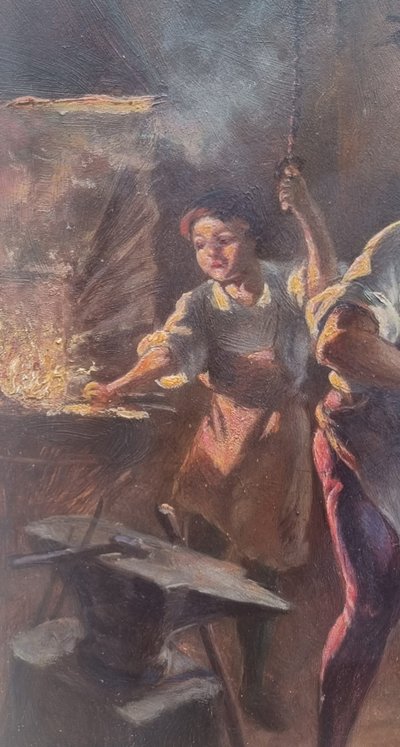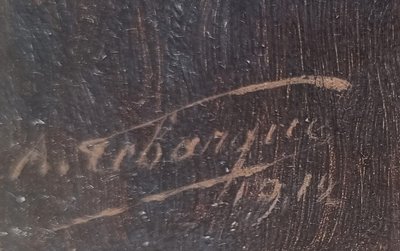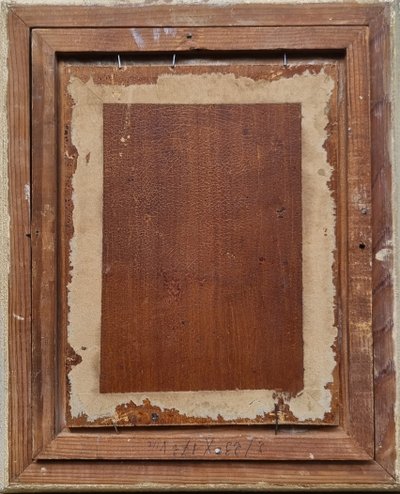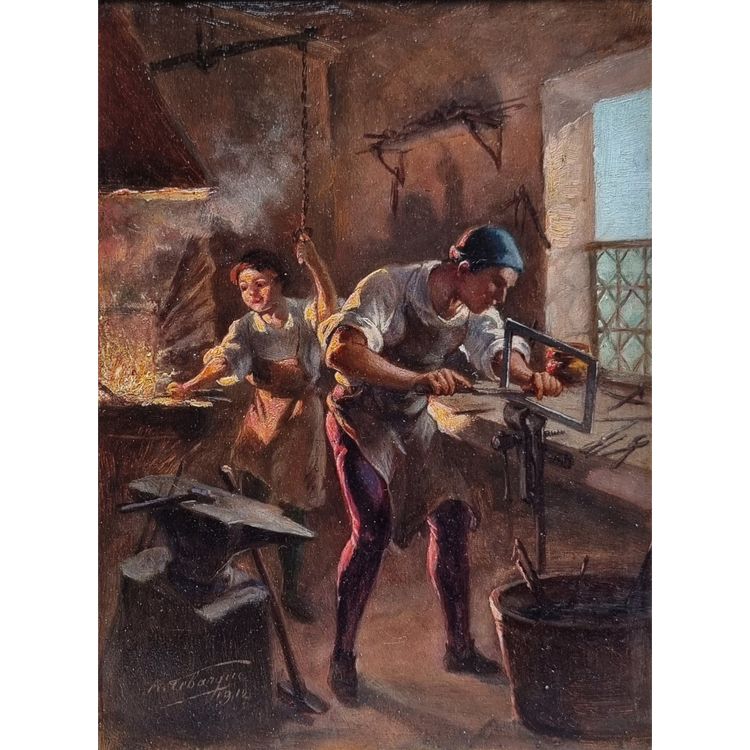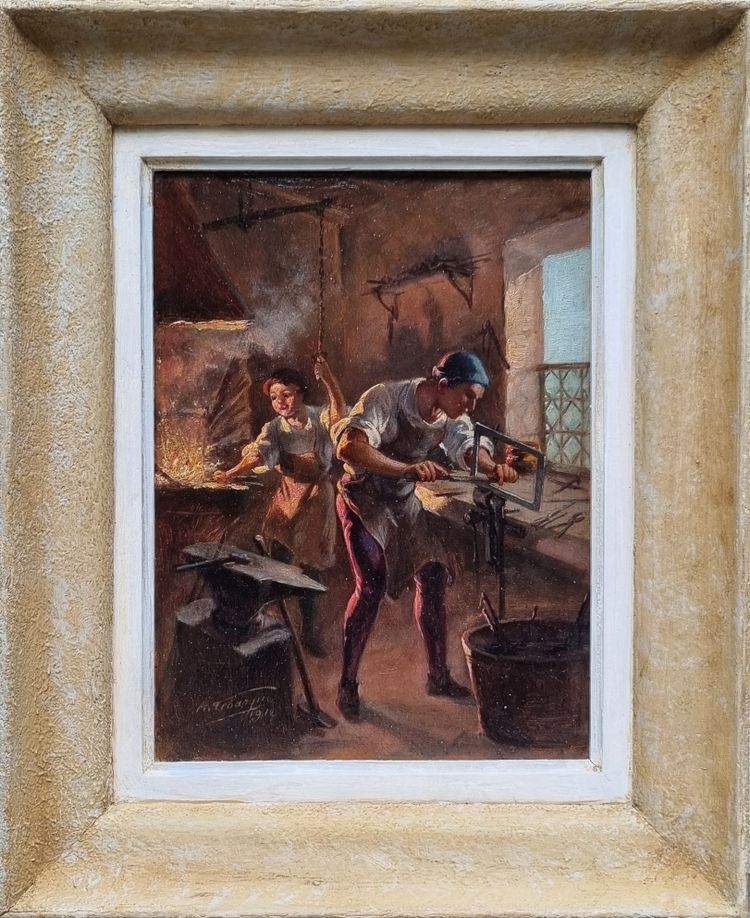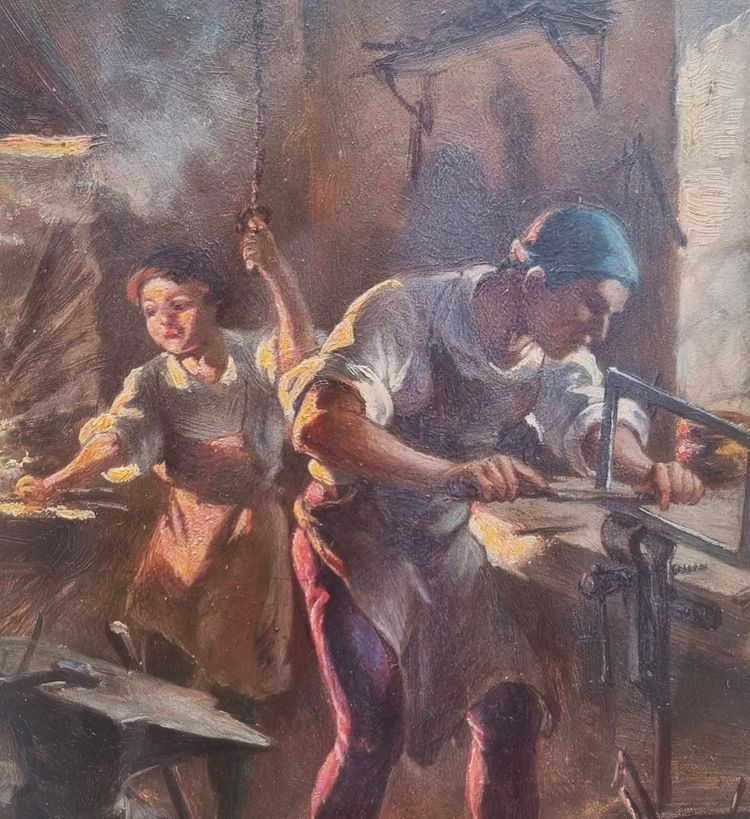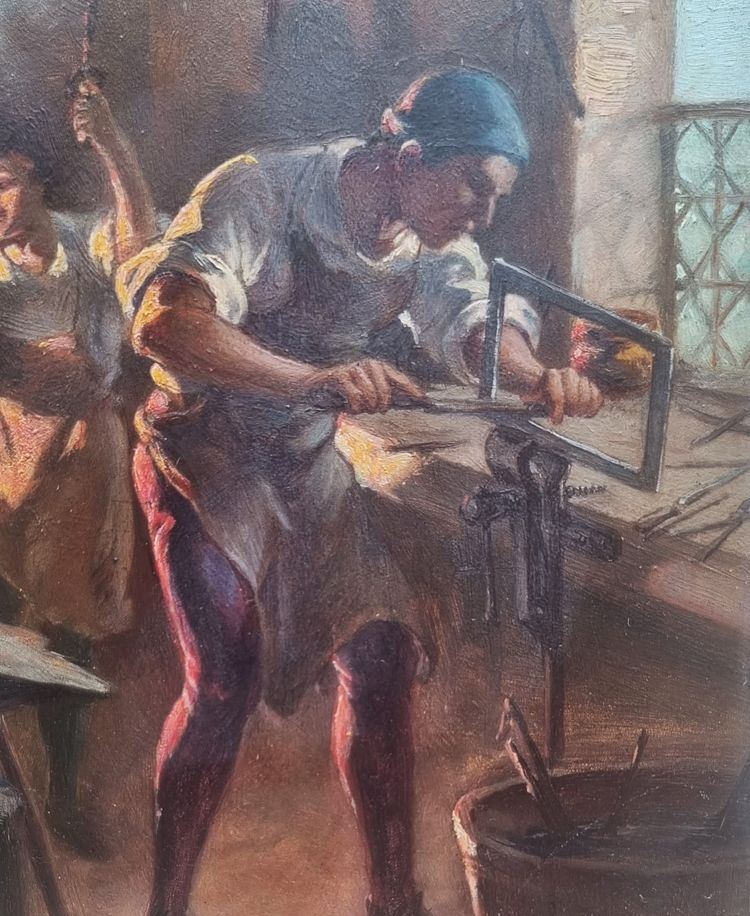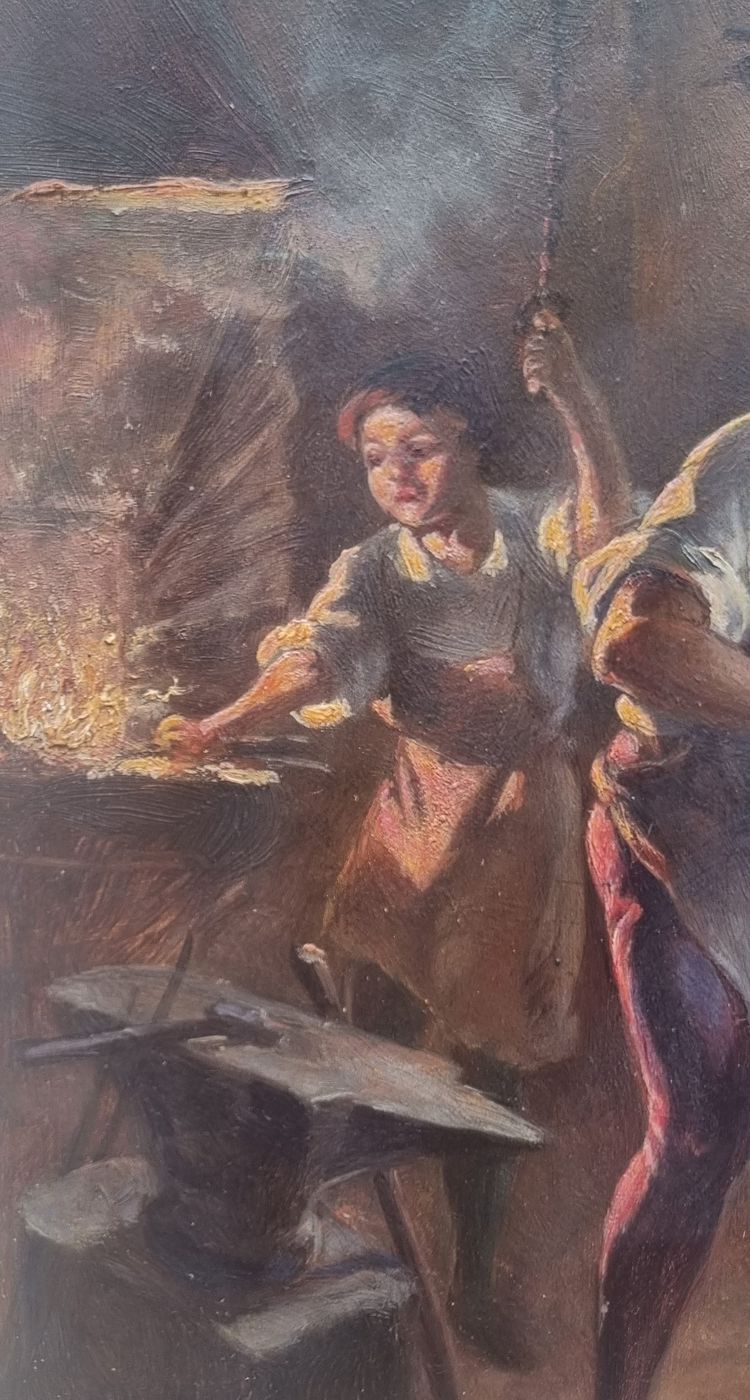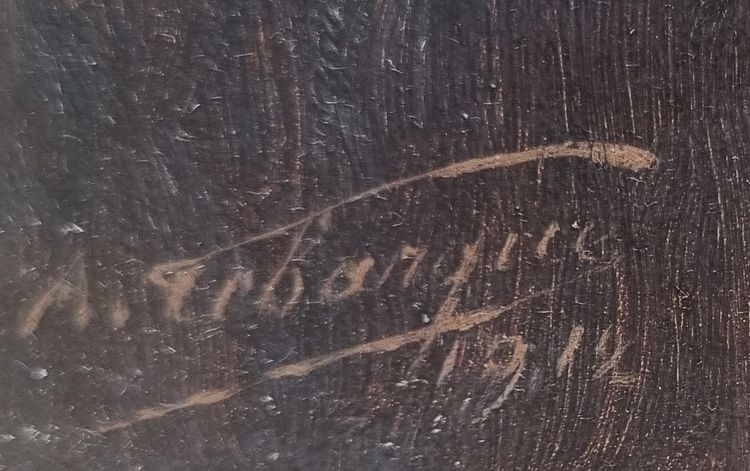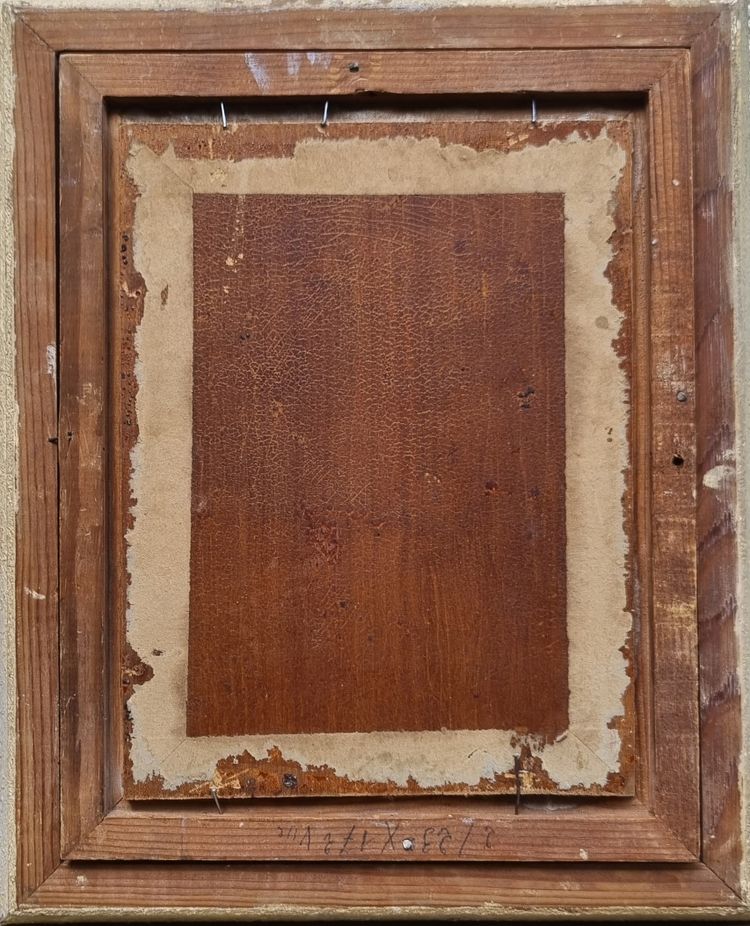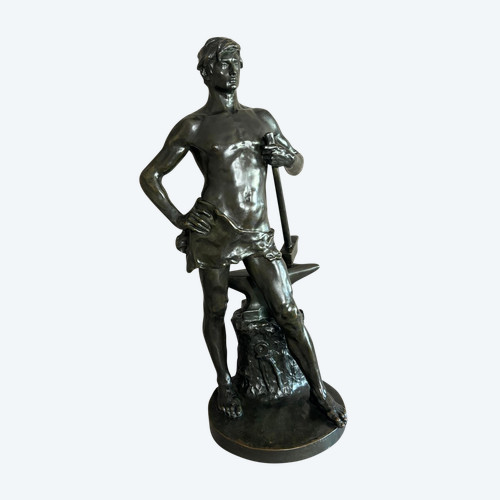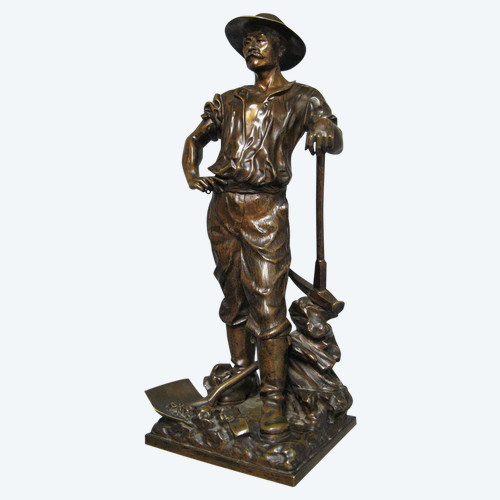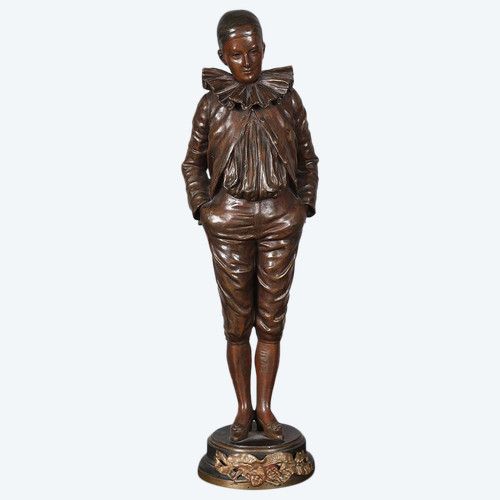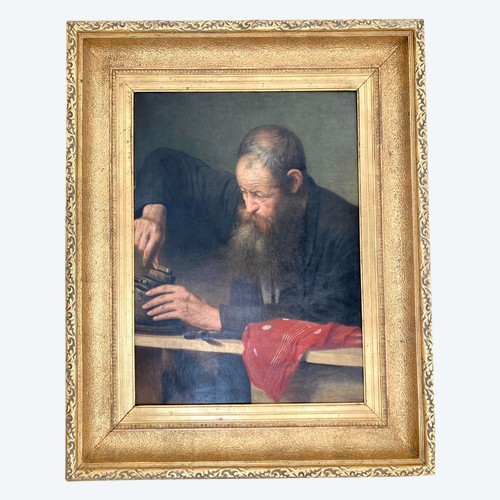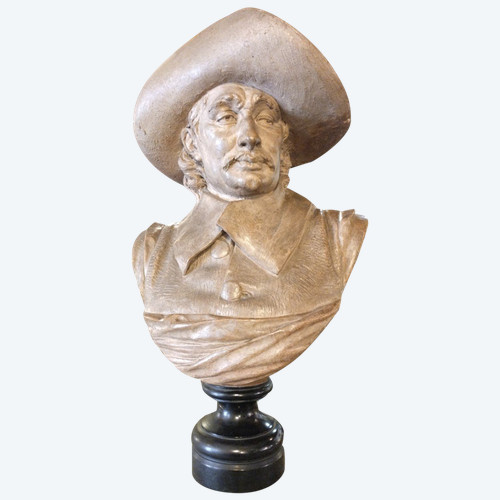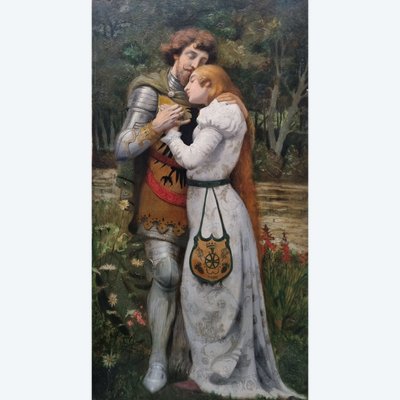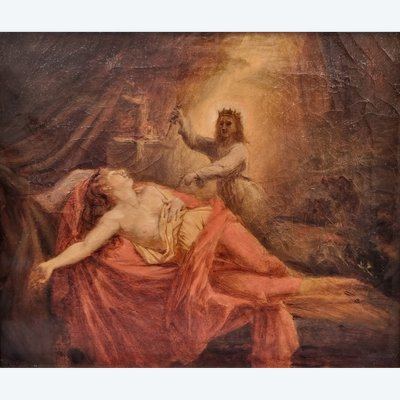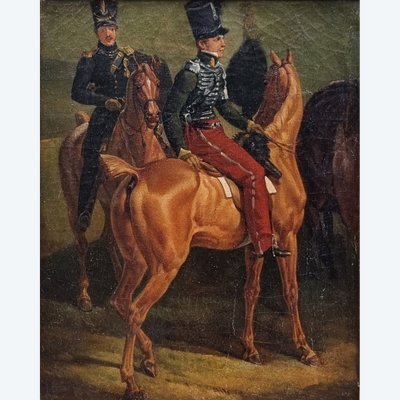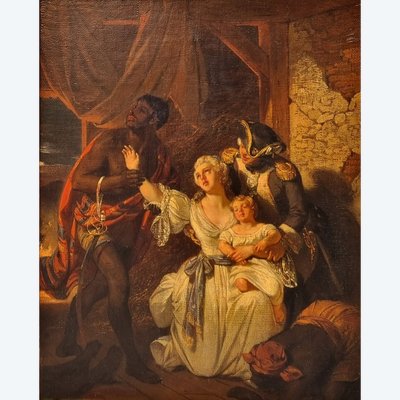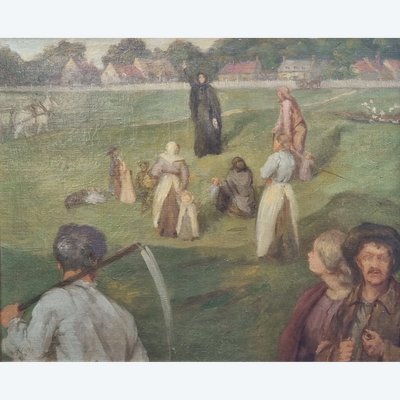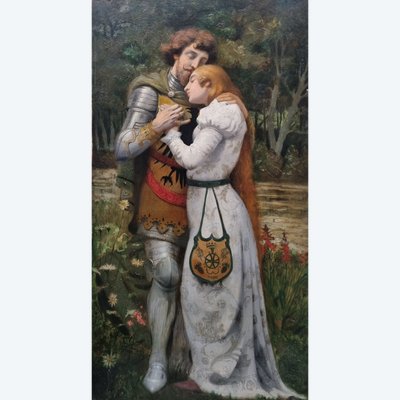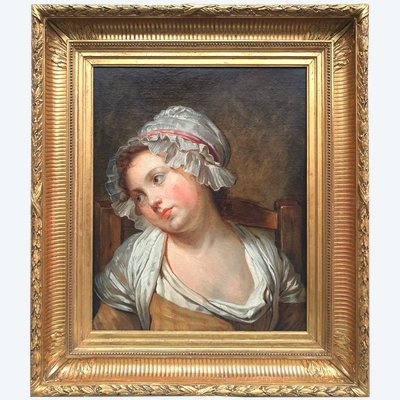This description has been translated and may not be completely accurate. Click here to see the original
Albert Léon LEBARQUE
Quatre-Champs (Ardennes), 1853 - Paris, 1939
The blacksmith's workshop
Oil on cardboard
24 x 18 cm (34.5 x 28 cm with frame)
Signed and dated lower left "A. Lebarque / 1912
Fine early 20th-century painted wood frame
Very good condition
Painter, sculptor and medalist Albert Lebarque lived in Aulnay-sous-Bois. He was a pupil of Eugène Carriere and is best known for his painted ceramics. A painter and sculptor, Lebarque is best known for designing medals for the Compagnie du Chemin de Fer du Nord.
Aulnay sous Bois is linked to the history of the French railroad industry. The Paris-Soissons line was the vehicle for rail development linking Paris to northern France. In 1875, the Compagnie de Chemin de Fer de Bondy à Aulnay-les-Bondy, which later became Aulnay-sous-Bois, was created. In 1898, the Compagnie du Chemin de Fer du Nord began planning a direct link from Aulnay-sous-Bois to Verberie, to open up an easier route for freight trains between the northern industrial basin and Paris. In 1911, Société pour la construction de matériel de chemin de fer, known as "La Lilloise", was founded in Aulnay sous Bois. It specialized in the manufacture of steam locomotives for narrow gauge, and employed over two hundred people in its forge, boiler and machine tool workshops.
Lebarque exhibited at the Paris Salon from the 1880s onwards, as well as at world's fairs. In 1880, he exhibited a "Portrait de M. L ...", in 1885 a "Medaillon", in 1888 a "Tête de femme orientale, faïence" and in 1889 a genre scene entitled "En vedette". Labarque won an honorary medal at the 1914 Salon and a bronze medal in 1920 for two medallion engravings.
This small painting by Albert Lebarque is close to his master Eugène Carrière in style, with beautiful light and a lovely cameo of colors. The subject is a small trade, that of blacksmith, which developed in Aulnay-sous-Bois in the 1910s with the creation of "la Lilloise". It is dated 1912.
Ref: 725PK3DH1J
 Art Nouveau Mounted Shell, 19th Century
1.200 € EUR
Art Nouveau Mounted Shell, 19th Century
1.200 € EUR

